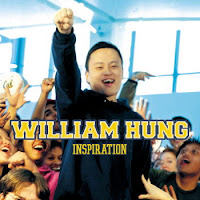How Can I Keep from Singing? - Enya (mp3)
Nancy Flanagan taught music for 30 years. She’s a successful consultant to schools. Her opinion deserves to be in Education Week, and mine is on a silly little music blog. Based on her post, Ms. Flanagan and I have at least one thing in common: neither of us are very fond of American Idol. From there, unfortunately, our opinions begin to diverge.
She’s a music teacher; I’m a music listener. And that, as they say, has made all the difference.
Some of the things she writes in "Music Teacher Hates American Idol" are painfully misleading. Much of what she says is true without being honest, or honest without being real. Something is missing in there, and it's either because she wears earplugs or because she wants a different reality than the one in which the entirity of humanity has existed since the dawn of man- and womankind.
Everyone who can speak can sing. Really. Singing is just extended, rhythmic speech.True statement. But what is not true -- and this is important to most people with ears -- is that not everyone can sing well.
Does this mean people should be discouraged from singing? Not necessarily. Bad singing is why God invented showers and hard-top automobiles, so that bad singers like myself, who love to sing and love to do it loudly, can express ourselves musically without causing irreparable harm to those we love.
Ms. Flanagan is like most idealists. They refuse to see the forest for their own super-special tree of expertise.
Speaking of, if a tone-deaf person sings in the forest, and no one is around to hear it, does it still make a bad sound?
What bothers me, as a music teacher, is that children watch American Idol, and have now developed this idea that singing is something that should be attempted only by the "talented." Children see judging singers as an amusing spectator activity, and making fun of imperfect singers as perfectly OK. Hilarious and justified, in fact: anyone who dares to sing in front of a camera deserves our scrutiny and scorn.Poppycock, I say. This program is 10 years old. It has become one of the most-viewed programs in the history of television. Anyone who waits in that line, puts their mug in front of those cameras and tries out has no real excuse. I’ve only watched four, maybe five episodes in a decade, but I still know the name William Hung.
American Idol is not a classroom or an obligation; it is a voluntary talent show. (Her classes, on the other hand, were probably required.) Further, not once in my life or in the experiences of my children has watching this show created in us a fear of singing anymore than listening to Barbara Streisand or The Three Tenors, or anymore than watching Heathers made me scared of high school.
Seriously, what’s her point? Does she even like recorded music, or does the very act of deciding that some musicians are worthy of recording while others are not risk giving our precious flowers the impression that one kind of expression is better than another? Does she hate Mozart and Beethoven for taking all the good gigs away from the rest of the composing world? Does she despise Frank Sinatra for suggesting that you had to have oily hair and a slick personality to make it as a singer? Just how far down this ridiculous and slippery slope does she want to go?
Further, if we're really looking for all the ways something on TV can be translated as unhealthy for our children, I would like to think we'd worry more about the abuse of issues like sexuality before we attacked the crime of Vocal Prejudice.
If there is someone in your past who suggested that your singing voice is substandard, that person has done you harm, making you self-conscious about your primary expressive instrument... Nobody can tell you that you can't sing.Can't sing? Agreed. No one should say tell you that. Everyone should be entitled to express themselves in such a fashion. Can't sing well? Yeah, that one is fair game.
And Ms. Flanigan, if you think American Idol has ruined our humanity and our ability to know about the power of singing, please explain this video (I get misty every single time I watch it):
One day, when advocates and idealists grasp the unfortunate fact that life isn't a Disney movie and live with the rest of us in the real world, they might actually make a positive impact.






